Fat Chance est un film canadien de genre Documentaire
Fat Chance (1994)
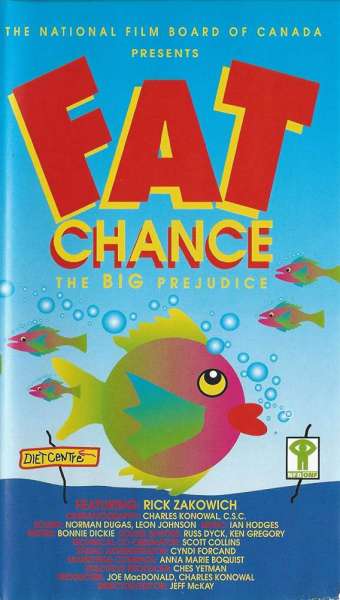
Si vous aimez ce film, faites-le savoir !
- Infos
- Casting
- Infos techniques
- Photos
- Vidéos
- Passages TV
- Citations
- Personnages
- Musique
- Récompenses
Fat Chance is a 1994 National Film Board of Canada (NFB) documentary film directed by Jeff McKay about fat acceptance. The film focuses on Rick Zakowich, a 40-year-old, 400-pound Winnipeg man who sets out to lose half his body weight, but then decides to accept himself the way he is. The film follows Zakowich's journey to self-acceptance, as he goes on to found a self-help group for large-size men and became an activist for fat acceptance.
Director McKay began on the project in 1990, filming for almost two years and editing for almost three years. Originally planned as a half-hour film, Fat Chance was completed as a 72-minute theatrical documentary, then broadcast in a cutdown version.
The film was written by Bonnie Dickie and produced by Charles Konowal and Joe MacDonald for the NFB.
Commentaires
Postez un commentaire :
Suggestions de films similaires à Fat Chance
Il y a 8965 ayant les mêmes genres cinématographiques, 1380 films qui ont les mêmes thèmes (dont 156 films qui ont les mêmes 2 thèmes que Fat Chance), pour avoir au final 70 suggestions de films similaires.Si vous avez aimé Fat Chance, vous aimerez sûrement les films similaires suivants :
 , 1h5
, 1h5Réalisé par Richard Young
Origine Etats-Unis
Genres Documentaire
Thèmes Maladie, Documentaire sur une personnalité, Documentaire sur la santé, Folie, Le handicap

How to Die in Oregon (2011)
, 1h47Réalisé par Peter Richardson
Origine Etats-Unis
Genres Documentaire
Thèmes Maladie, Le suicide, Documentaire sur une personnalité, Documentaire sur la santé, Folie, Le handicap
Note81%





Through a 1994 ballot measure (Measure 16) named the Oregon Death with Dignity Act, Oregon became the first U.S. state and one of the first jurisdictions in the world to allow physician-assisted suicide. How to Die in Oregon covers the background of the Oregon law and the life of a few patients who have chosen to take their life under it. It also features some information about the neighboring state of Washington's attempt to legalize physician-assisted suicide in 2008 through a law (Washington Death with Dignity Act) modeled after Oregon's.
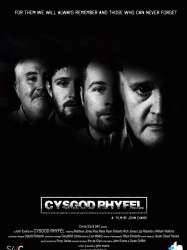
Cysgod Rhyfel (2014)
Origine Royaume-uni
Genres Documentaire
Thèmes Maladie, La mer, Le terrorisme, Transport, Documentaire sur la guerre, Documentaire historique, Documentaire sur la santé, Folie, Le handicap, Politique
After active service in Northern Ireland, the Falklands, Iraq and Afghanistan four veterans openly discuss their experiences of conflict and the psychological effects of war on their lives beyond the battlefield and how they live life after their wars and once they return home. The film uses a mixture of talking head testimony, archive and highly stylised dramatic sequences.
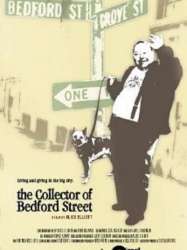
Genres Documentaire
Thèmes Maladie, Documentaire sur une personnalité, Documentaire sur la santé, Documentaire sur les villes, Folie, Le handicap
Note78%






Flore (2014)
, 1h32Réalisé par Jean-Albert Lièvre
Genres Drame, Documentaire
Thèmes Maladie, Documentaire sur la santé, Folie, Le handicap
Note69%





Depuis 2005, la mère du cinéaste Jean-Albert Lièvre, Flore, est atteinte de la maladie d'Alzheimer. De cliniques en centres spécialisés, son état dépérit. Sa famille décide alors de l'installer dans leur villa en Corse pour lui prodiguer une thérapie alternative…

Vivre, vite (2006)
, 1h27Origine Etats-Unis
Genres Documentaire
Thèmes Documentaire sur une personnalité, Documentaire sur la santé, Le handicap
Note74%





Vivre, vite retrace cinq années de la vie de Stephen Heywood qui, à 29 ans, découvre qu'il a une maladie paralysante neuro-dégénérative, la sclérose latérale amyotrophique (maladie de Charcot).
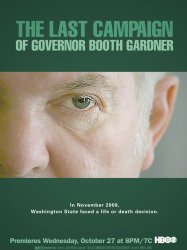 , 38minutes
, 38minutesRéalisé par Daniel Junge
Origine Etats-Unis
Genres Documentaire
Thèmes Maladie, Le suicide, Documentaire historique, Documentaire sur la politique, Documentaire sur la santé, Folie, Le handicap, Politique
Note70%






Passion Despair (2011)
, 1h33Genres Documentaire
Thèmes L'enfance, Maladie, Sexualité, La pédophilie, Documentaire sur l'art, Documentaire sur le droit, Documentaire sur une personnalité, Documentaire sur la santé, Documentaire sur la maltraitance des enfants, Folie, Le handicap, Maltraitance des enfants
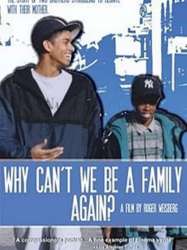 , 27minutes
, 27minutesOrigine Etats-Unis
Genres Documentaire
Thèmes La famille, Maladie, Psychotrope, Documentaire sur le droit, Documentaire sur une personnalité, Documentaire sur la santé, Folie, Le handicap
Acteurs Ossie Davis
Note71%





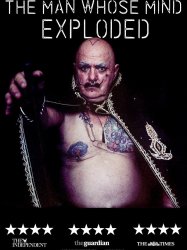
The Man Whose Mind Exploded (2014)
Genres Documentaire
Thèmes Maladie, Documentaire sur la santé, Folie, Le handicap
Note66%





Drako Oho Zarharzar can remember modeling for Salvador Dali and hanging out with The Stones. But he can't remember yesterday. Following a severe head injury Drako has serious brain damage and terrible memory loss. He can access memories from before his accident, but can't imprint new ones. As he puts it, "the recording machine in my head doesn't work". As an antidote to depression he chose to live "completely in the now" according to the bizarre mottoes delivered to him whilst in his second coma. Living in a tiny flat completely filled with a collage of memories, reminders and erotic art Drako's house acts as a metaphor for his extraordinary mind.
 Connexion
Connexion